Let me begin by letting you know that I am an introvert at heart. Making small talk with people I do not know was not a strong part of my wheelhouse when I began teaching over twenty years ago. I wasn’t sure how to effectively foster teacher to parent communications.
As I gained experience and asked for help, I grew to love the teacher-parent relationship. My relationships with parents are solid and I’m no longer terrified of them. I now feel quite comfortable and confident delivering difficult information in a kind and respectful way for everyone involved. So, today I’m sharing my 3 keys for successful and positive teacher-parent communication.
There was one quote that my then mentor and now BFF (she teaches in the classroom next door) shared with me that I always keep at the forefront of my mind when getting to know my students and their families.
Remember, all the parents’ hopes and dreams are wrapped up in that little person!
Andrea James
When she shared that simple thought, it took me back. When I began teaching, I was only focused on academics. I wanted to make sure they were learning. If they were learning, I believed I was doing my job, and the parents would be happy. I never gave thought to the person they sent me every day as a package of hopes and dreams.
Don’t get me wrong, I loved my kiddos when I first began my teaching career (and still do), and we had a great time. But, I’m embarrassed to say that I didn’t realize parents wanted to know more about their child than just if they understood the curriculum.
Seeing my students through their parent’s eyes helped me understand what made them tick.
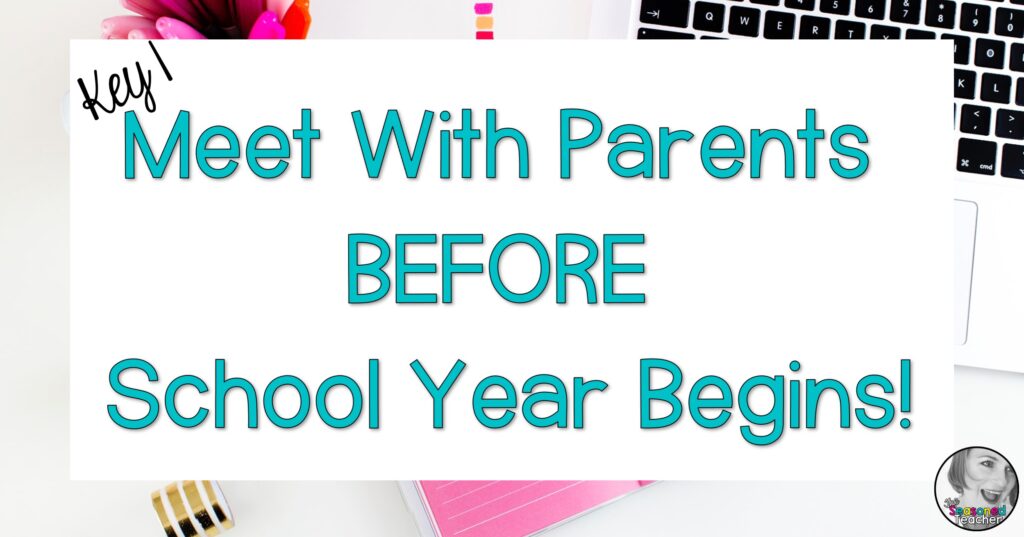
Meet With Your Parents BEFORE The School Year Begins
Meeting with your parents before school begins sets the tone for the year. It puts you both on the same page while giving you insight into their hopes and dreams for their child.
Once I get my class list and have the family’s contact information, I send an invitation to the parents to meet with me without their child. I let them know this is a great time to share anything and everything about their student.
I schedule these for the week before school starts because, by that time, the physical space in my classroom is set-up. Thirty minutes is usually plenty of time to have a great conversation.
For the past several years, I’ve used the free version of SignUp.com, which has worked very well. A colleague recently recommended Calendly, which is also free. She swears by it.
This year because of the Covid-19 situation, I’ll have these conversations virtually via Zoom or Google Meet, whichever platform my school decides to use in the fall.
When parents aren’t sure what to say or ask, I prompt them with a few questions like:
- What do you see as your child’s strengths?
- What do you think your child needs to work on most?
- How does your child feel about the start of school?
- Who are your child’s friends in class and the grade?
Even though we do have a Back to School night early in the year, I ask if they have any specific questions about the class. Frequently, they will ask about classroom management, the amount of homework, how I teach reading, math, and writing, and how I communicate about what is happening week by week.
For those parents that aren’t able to make it to the meeting or don’t sign up, I send a questionnaire for them to fill out that will give me information about their child.
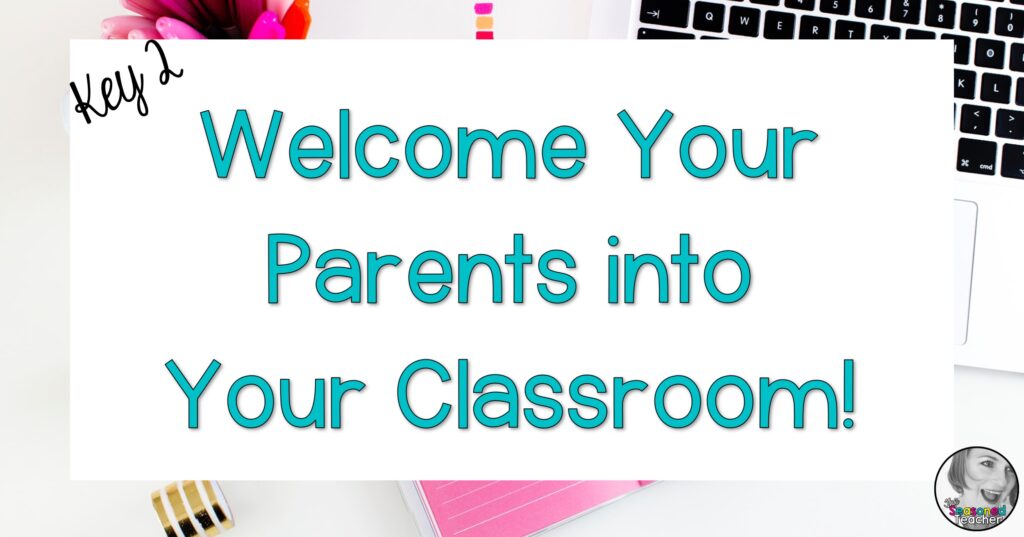
Welcome Parents In Your Classroom
Another way to strengthen teacher-parent communication is to make your parents feel welcome in your classroom.
Sometimes we tell parents they are welcome anytime in the classroom and don’t really mean it. Change your thoughts about this! When you tell them they are welcome, REALLY MEAN IT!
Contact Me!
The first thing I do to help my parents feel welcome is to immediately let them know how to get in touch with me. They have my school email and school phone. They know that I will respond within twenty-four hours.
Keep in mind a phone call is ALWAYS, ALWAYS, ALWAYS better than an email! To make sure I can reach them and not play phone tag, I’ll send an email to arrange a good time to call. I’ll also let them know a bit about the topic, so they don’t worry. Sending this type of email works well because they know the call is coming, and we can set aside a time that works for both of us.
My parents also know that if they have a question, concern, or want to check-in, they may find me in the classroom 15-30 before or after school to talk. I let them know that if the conversion is going to take longer, we may need to set up a meeting.
Parent as Presenter
The second part of welcoming parents is parent presenters. After our Back to School Night, where my parents receive our 4th grade Year at a Glance, I encourage them to come to class and present about a topic that relates to a unit of study or a subject about which they are passionate. We have a great deal of curriculum to cover, but having a parent presenter creates community and connections with families.
Parents Working in the Classroom
I also invite volunteers to work in my classroom. If they want to come and help, I can find something for them to do. Sometimes parents aren’t allowed or don’t want to work directly with students. That is not a problem. I’ll have them put unit folders together, cut out activities, make copies, etc.
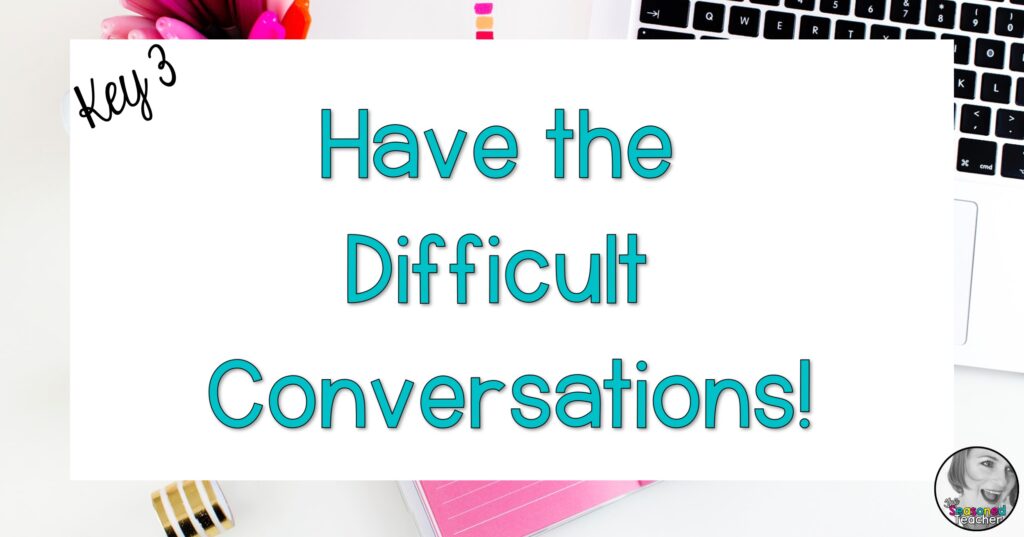
Have the Difficult Conversations
A third way to strengthen teacher-parent communication to have difficult conversations in an honest and respectful way. You know the difficult conversations. The conversations about behavior and academics.
This definitely took time to develop for me. I always felt like I had to have all the answers for whatever the problem. Once I realized I don’t have to have all the answers and began using the conversations with parents as problem solving talks, my confidence grew.
Because I have already met with my parents, checked in with them before or after school, and communicated with them that they are welcome anytime, it is easier to have those difficult conversations.
It’s a good idea to brief your administration about the problem and what your plan is. I always want to make sure they are in the loop. Ask them to sit in on the meeting if that is appropriate.
Both you and your parents may be on edge about the conversation that is about to take place. That is natural. So, before you even begin the conversation, pay attention to your facial expressions and body language.
Greet your parents with a relaxed, neutral, and pleasant facial expression. Smile at them to let them know that whatever the issue, it is not the end of the world.
Shake their hands (if you can) if they come to the classroom or thank them for talking with you if it’s a phone call.
If possible, try sitting without a table or desk between you. Sitting on the same side of the table or desk can make parents feel more comfortable and shows that you are both on the same team.
Start the conversation with positives. Highlight positive behaviors the student shows or academic areas where he or she is strong before jumping into the problem.
Share the problem with empathy.
If it’s behavior, put yourself in your parent’s shoes. Depending on the issue, they may be defensive. Share the facts without judgment and negative emotion. Be compassionate and kind. I always think about how I want to be told about whatever the behavior was.
If you know going into the meeting that your parent is not going to react well, make sure your someone from your administration will be there and let your parent know.
If it’s academic, make sure to have your data or examples along with grade-level benchmarks to share with parents. Again, don’t make judgments. Come together with the parents to create a plan for success and a time to follow up.
Assure them you are all on the same page and only want what is best for their child.
After the meeting, if your administration was not there, fill them in on everything. Send a “thank you for meeting” email to your parents. You can also include a summary of the meeting and whatever the plan, if necessary, is going forward.
Having clear teacher-parent communication helps create healthy school-family connections. The three keys are my absolute go tos when building these relationships with parents.
Let me know how they work for you. What are your favorite tips for creating positive teacher-parent communication?

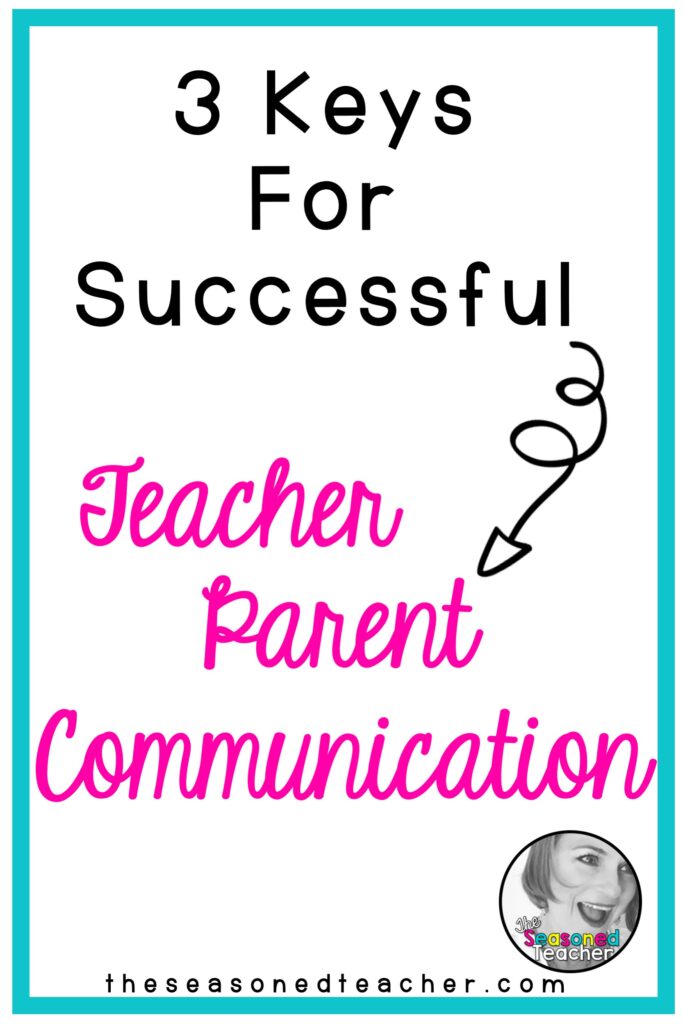
You May Also Like
No related posts.

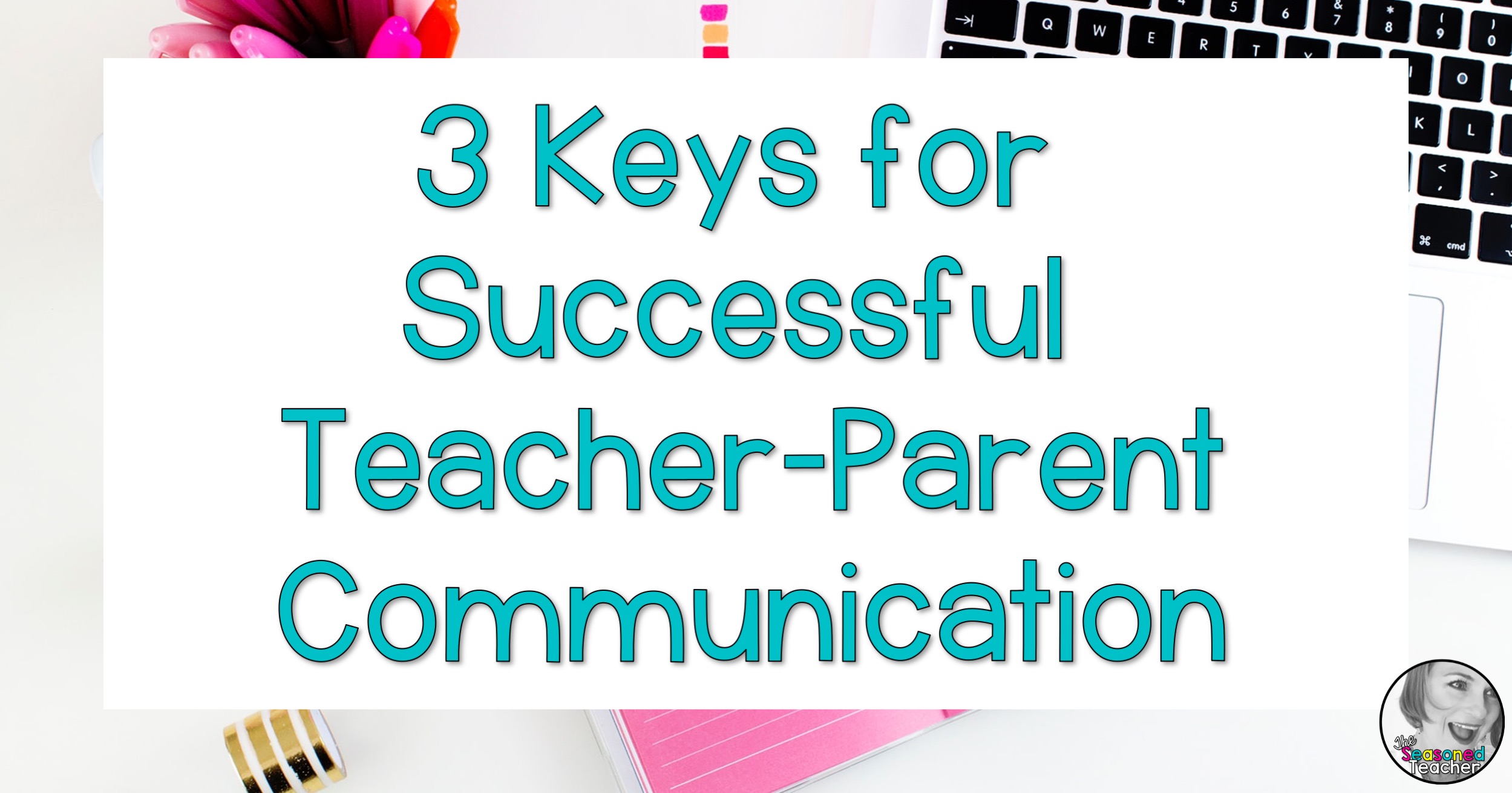



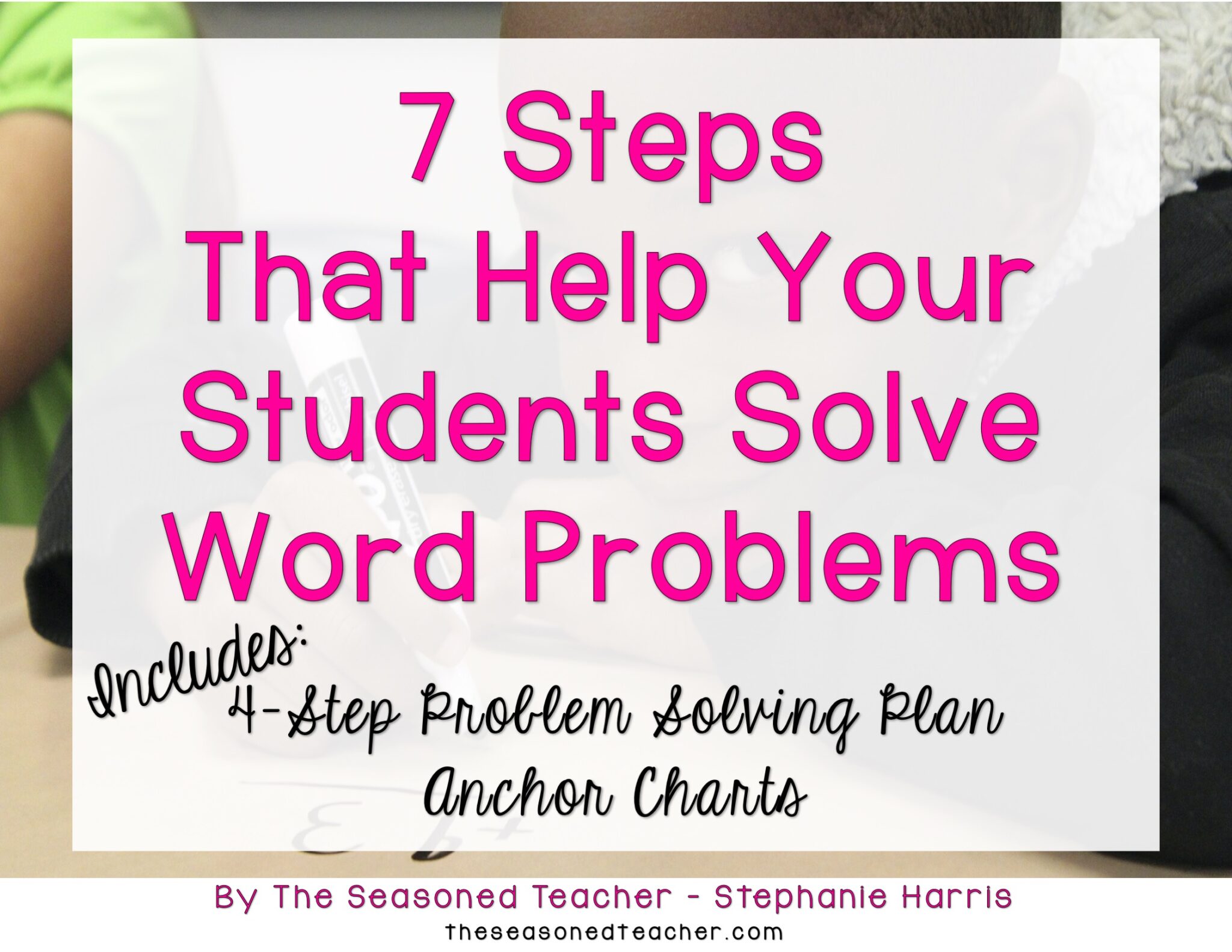
2 Responses
It’s SO hard to have those difficult conversions, but they are needed!